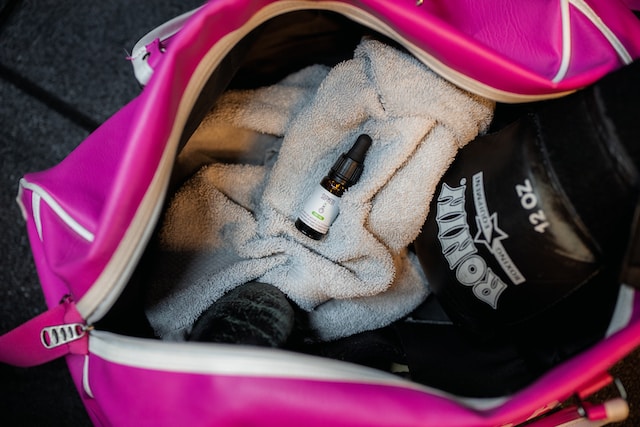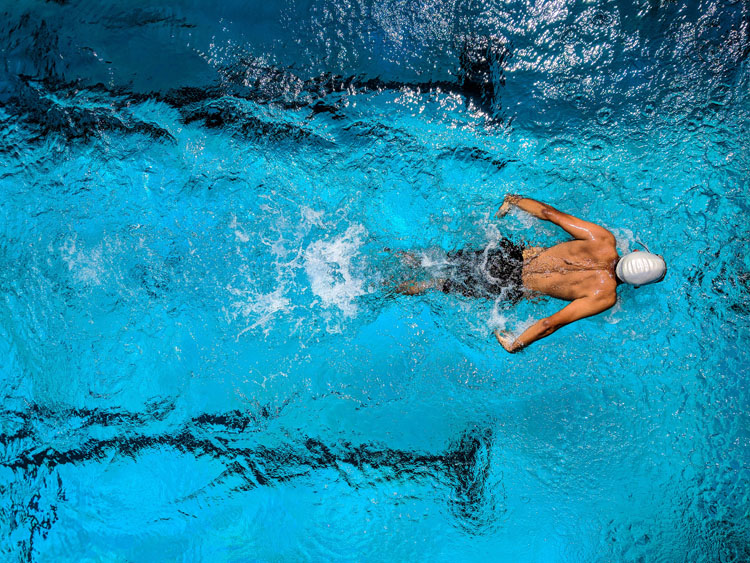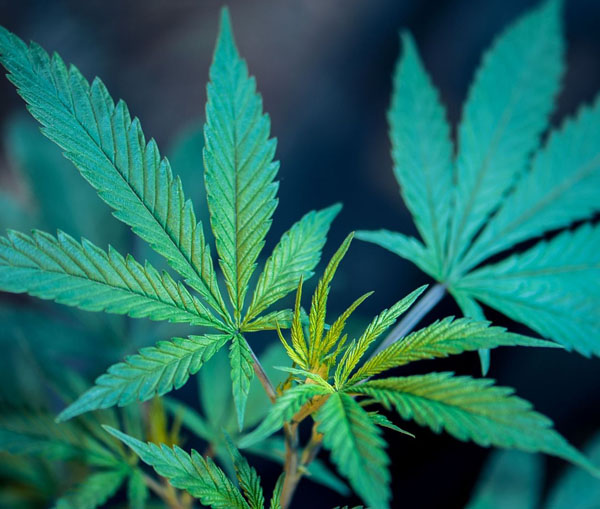Have a question? 06 70 73 89 02
🔞 Not for sale to under 18s
🔥 30% off EVERYTHING on the site with the code: FLASH30!!! 🔥 ( except accessories and gummies)
Have a question? 06 70 73 89 02

Cannabidiol (CBD) is a substance found in Cannabis, but unlike THC, cannabidiol has no psychoactive effect. CBD interacts with the brain's CB1 and CB2 receptors, as well as with anandamide, a neurotransmitter also known as the "happy molecule", acting as a tranquilizer and providing a feeling of well-being.
The question of its positive impact on the practice of sport, whether professional or amateur, has been raised for some years now, as many athletes claim its virtues.
In 2019, Canadian medical cannabis company Aurora Cannabis, based in Edmonton, and the UFC (Ultimate Fighting Championship), the world's largest mixed martial arts organization, have joined forces to support scientific research into the impact of CBD on sports.
The aim of this research is to understand and scientifically prove CBD's beneficial role in reducing inflammation, indirectly increasing performance, reducing recovery time and better managing injury-related pain.
This is based on the observation that many sports professionals who use CBD topically (balm or oil) or orally, report a marked improvement in their recovery time and therefore their performance. So it's time to scientifically objectivize the positive effects of the CBD molecule. These studies, currently underway in Las Vegas, could have a general impact on the practice of sport by everyone, professionals and amateurs alike.
Numerous testimonials from sportsmen and women , as well as scientific studies already carried out on animals[1], demonstrate the positive impact of CBD[2] in a number of key areas. Since the legalization of CBD, the product has become popular with many sportsmen and women, and there are countless blogs and articles talking about its use in quad biking[3], basquet[4] and even American soccer.
CBD acts on 5-HT1A serotonin receptors, promoting a state of calm and focus without causing drowsiness. It reduces the excessive release of cortisol (stress hormone), helping to better manage mental pressure before a sporting event. Its action on stress and dopamine regulation has been studied in disorders such as schizophreniawhere it may have a stabilizing effect on anxiety and cognitive symptoms.
CBD's anti-inflammatory and analgesic properties can help reduce pre-workout muscle and joint pain. What's more, during exercise, it blocks certain pain pathways (TRPV1 and CB2 receptors), helping to improve exercise tolerance.
CBD regulates blood sugar and energy metabolism, helping to maintain stable energy levels. It also improves oxygenation of muscle tissue, reducing the sensation of premature fatigue.
In addition to its impact on physical energy, some research is looking at its potential effect on concentration and impulsivity management, particularly in people with ADHD (Attention Deficit Disorder with or without Hyperactivity).
Known for its anti-inflammatory properties, the use of CBD is said to result in much faster muscle recovery.
intense training sessions, particularly in the evening, have an impact on sleep quality. CBD, by interacting with Anandamide (a neurotransmitter), will reinforce their calming effect and the feeling of well-being provided by the activation of these neurotransmitters. In this way, CBD promotes sleep and recovery for the athlete: mental recovery, body recovery and muscular recovery. Finally, the advantage of CBD is that, unlike sleeping pills, it is not physically addictive.
CBD, through its interaction with adenosine, slows down the risk of cardiovascular disease and premature aging caused by intense sports. The molecule also helps reduce any nausea that may occur during intense exercise. Finally, its antispasmodic effect helps reduce cramps.

When asked about the impact of CBD, Dr. Peter Grinspoon, a medical expert in toxicology and cannabis, draws on current studies carried out on humans and animals, as well as positive testimonials from athletes using CBD, to assert that it is clear that the CBD molecule has a powerful impact on the practice of sport[5].
CBD is proving to be a valuable ally for athletes and a good alternative to the use of drugs, steroids and various medications. It plays a key role in recovery and pain management. Andrew Talansky, triathlon athlete and champion cyclist, now usesCBD oil alone to soothe the aches and pains associated with his many training sessions. He says he used to use Ibuprofen, but as soon as the muscles cooled down, it no longer had any effect. Regarding CBD oil, he says: "I took it for a few weeks, and there was a noticeable difference immediately, and it wasn't just that my hip felt better. I was less anxious and I slept better. It's the only thing I use now, and I try not to oversell it as a miracle cure, because I don't want to sound like a madman. But if you have the opportunity to stop taking other painkillers, then CBD is probably the best option, and above all a natural solution."[6]

Since January 1, 2018 the World Anti-Doping Agency (WADA) has removed the use of CBD from its list of proscribed substances. THC and the other components of cannabis remain prohibited, although many athletes are also claiming the right to use medical cannabis.[7] From then on and to this day, a professional athlete is legally entitled to use CBD oil, provided that its composition is indeed THC-free, and complies with the regulations.[8]. In the run-up to a competition, avoid products that have undergone full-spectrum extraction. You can also opt for 0% THC products.
CBD can be used in a number of different forms (infusions, flowers or resins for inhalation, e-liquids, balms), but CBD oil remains the most effective way: by taking it under the tongue, it makes contact with our endocannabinoid receptors quickly and with little loss. Dosage will depend on the individual, which is why it's a good idea to test the right quantities beforehand[9], as every human has his or her own biology.